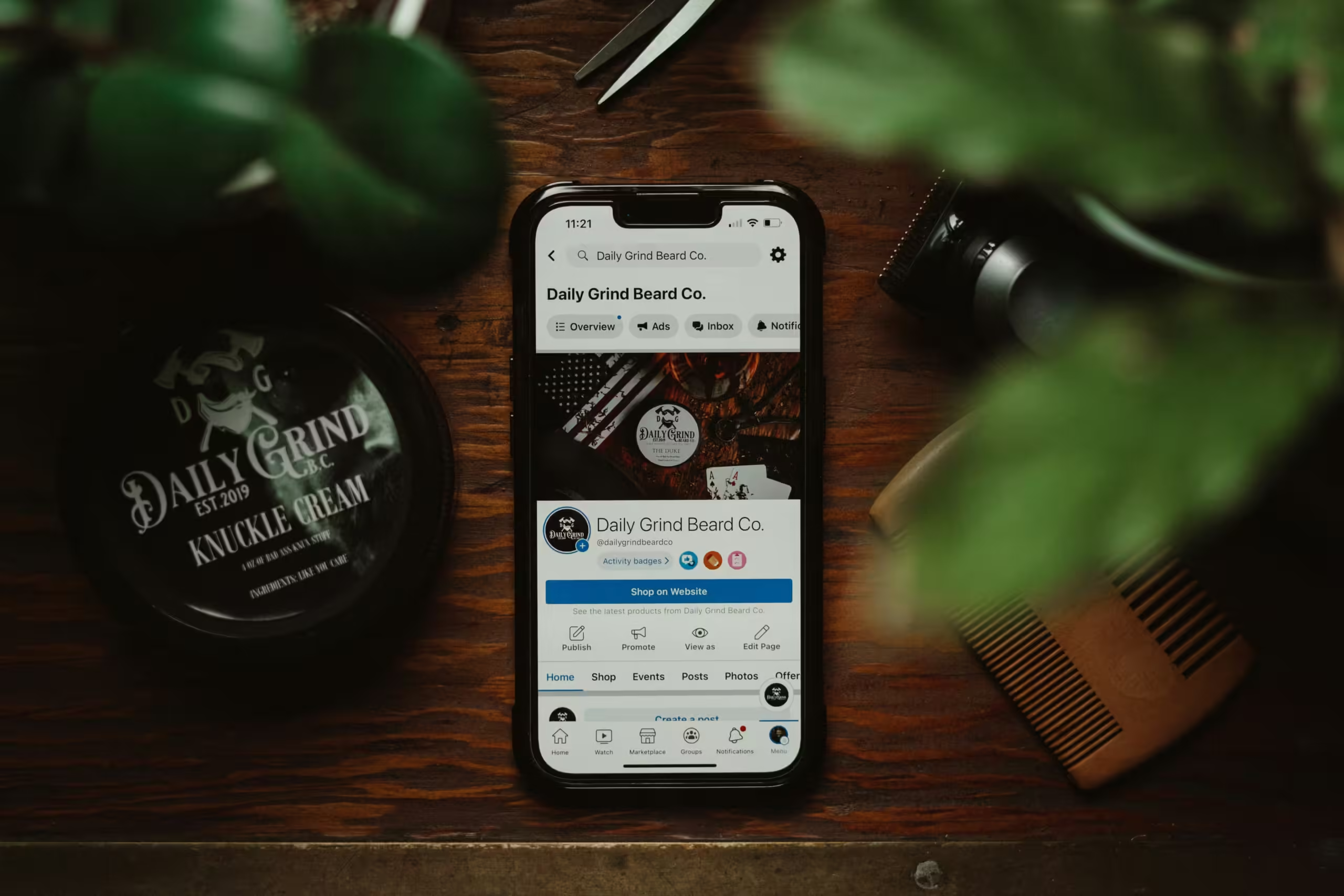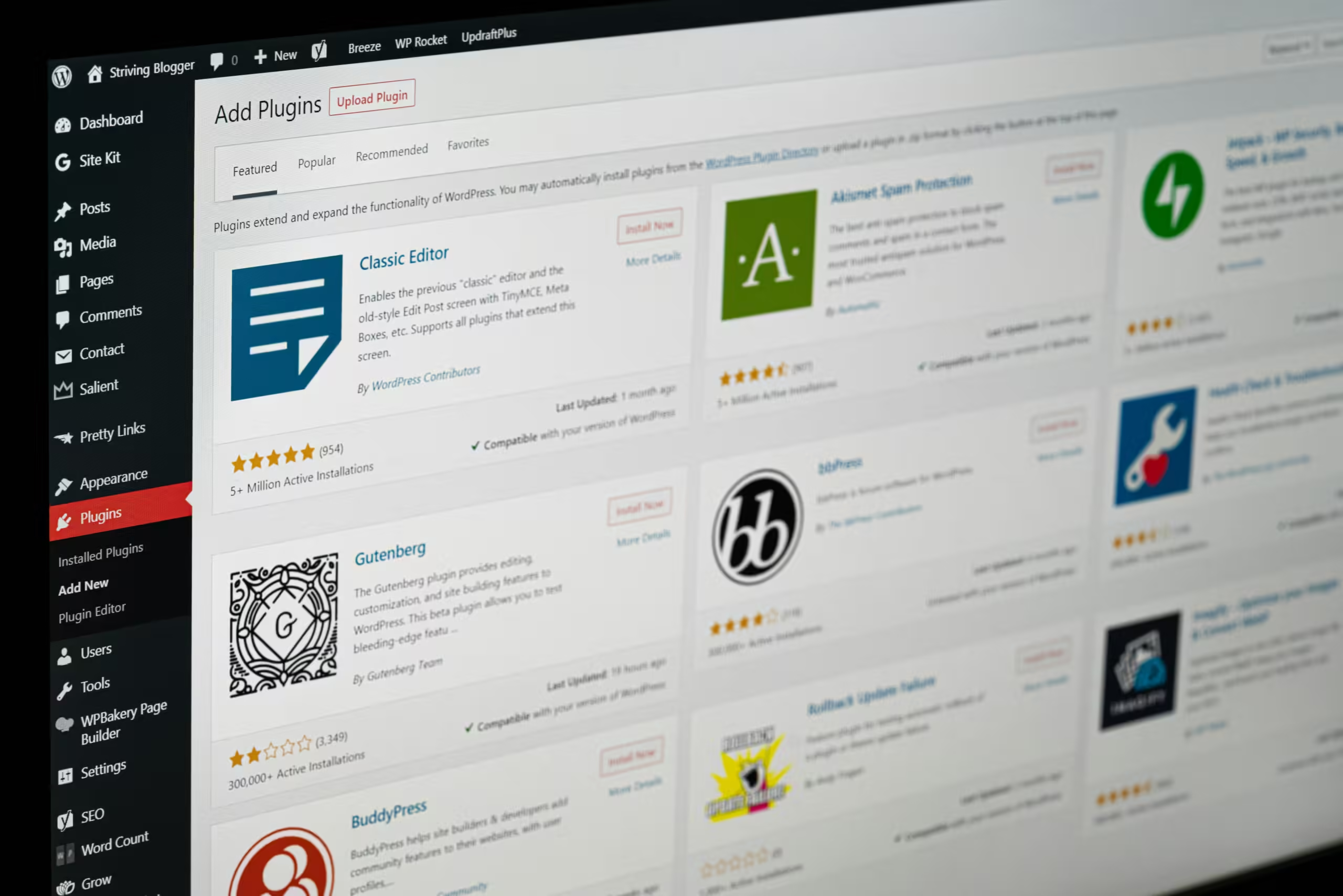Introduction to Dietitian Websites
In today’s digital age, having a professional website is paramount for dietitians seeking to establish their practice and connect with clients effectively. A well-designed website serves as a critical platform for dietitians, enhancing their credibility and showcasing their expertise in the field. When potential clients search for nutrition services, the first impression often stems from the dietitian’s online presence. An aesthetically pleasing and functional dietitian website can lead to increased trust among clients, demonstrating professionalism and dedication to their craft.
Moreover, a professional dietitian website promotes better client engagement through accessible resources. This entails providing informative content, such as blog posts, downloadable guides, and nutrition tips that empower clients to make informed dietary choices. By fostering a sense of community and continuous learning, dietitians can create long-term relationships with their clients, ultimately improving retention rates and client satisfaction.
Additionally, the design and functionality of a dietitian’s website can influence client experience significantly. An intuitive layout, mobile optimization, and easy navigation are crucial aspects of user experience that help retain visitors and cultivate interest in the services offered. A dietitian website developer who understands these nuances will ensure that the site caters to the specific needs of the target audience, facilitating both usability and SEO performance.
Our company bearhouse is proficient in dietitian website development and we specialize in creating tailored websites that meet the unique needs of nutrition professionals. By collaborating with a dedicated dietitian website developer, practitioners can focus on their clients while entrusting the technical aspects of web development to experts, ensuring their online presence is both effective and impactful.
Choosing the Right WordPress Theme
Selecting an appropriate WordPress theme is crucial when developing a dietitian website. A well-chosen theme not only enhances the visual appeal of the website but also ensures that it meets the specific needs of those seeking dietitian services. The first consideration should be a clean layout that allows visitors to easily navigate through the content. A clutter-free interface ensures that potential clients can find the information they require without unnecessary distractions.
Moreover, the user-friendliness of the chosen theme plays a significant role in the overall experience of the website visitors. Themes that are tailored for health professionals often include features such as appointment booking forms, contact information display, and convenient navigation menus. Look for themes that offer these functionalities as standard, which not only saves time during development but also provides visitors with all the information they need quickly and efficiently.
Responsive design is another essential feature to consider during theme selection. With an increasing number of users accessing websites through mobile devices, it is imperative that the dietitian website functions seamlessly on all screen sizes. A responsive theme will adapt its layout to fit any device, ensuring that users have a positive experience regardless of how they choose to access the site.
Customization options should also be a key factor in your decision. The ability to tailor colors, fonts, and layouts allows dietitian website developers to align the site with personal branding and professional identity. Many premium themes offer robust customization settings that make it easy to create a distinctive and memorable online presence. Therefore, taking the time to research and select the right theme tailored to dietitian services will pay off in enhanced user engagement and satisfaction.
Check out our guide for Top 10 WordPress Themes for Developers in 2024.
Essential Plugins for Dietitian Websites
When developing a professional dietitian website, incorporating the right plugins can significantly enhance both functionality and user experience. Among the most essential plugins for dietitian websites are the Weight Tracker, Meal Tracker, and Client Portal. Each of these tools brings unique features that cater specifically to the needs of dietitians and their clients.
The Weight Tracker plugin allows clients to monitor their progress over time. This plugin features intuitive graphs and charts that enable users to visualize their weight changes, which is vital for motivation and accountability. Additionally, this plugin can provide automated reminders, encouraging clients to regularly log their weights, thereby fostering engagement with their wellness journey. As a dietitian website developer, having this tool integrated into your site can help streamline client interactions and maintain a focus on their goals.
Another noteworthy plugin is the Meal Tracker. This tool enables clients to track their meals, nutrients, and caloric intake, providing a comprehensive view of their eating habits. The Meal Tracker typically includes features such as food databases, meal planning panes, and nutrition analysis, allowing clients to make informed decisions based on their dietary needs. Not only does this plugin enhance user experience, but it also helps dietitians monitor clients’ food choices more effectively, allowing for personalized feedback and suggestions.
Lastly, the Client Portal plugin plays a crucial role in data management and client communication. It offers a secure space for storing sensitive information, sharing resources, and facilitating messages between the dietitian and client. With features like metrics tracking and personalized plans, a robust Client Portal enhances the client experience significantly. For those involved in dietitian website development, incorporating such plugins can streamline administrative tasks and improve overall engagement with clients.
Consider reading our Top 10 WordPress Plugins for Every Developer in 2024 guide that provides insight into additional plugins you may need to setup a healthy and well-designed website.
Integrating Weight Tracker and Meal Tracker
To create a robust dietitian website, integrating a Weight Tracker and Meal Tracker is essential for enhancing service offerings. These tools not only help dietitians manage client progress effectively but also facilitate better meal planning. The integration process can be streamlined by following a few practical steps tailored for WordPress users.
First, it is vital to choose reliable plugins that are compatible with WordPress. Popular options include “Weight Tracker” and “Meal Planner,” which can be easily installed through the WordPress dashboard. Navigate to the “Plugins” section, click “Add New,” and use the search bar to find and select the desired plugins. After installation, activate them to start utilizing their features immediately.
Once activated, configure the settings for each plugin to align with your practice’s goals. The Weight Tracker plugin typically requires customization of fields related to client profiles, so you can keep track of individual weight goals over time. Clients can enter their weight data regularly, which allows dietitians to monitor progress effortlessly and provide insightful feedback.
On the other hand, integrating the Meal Tracker involves setting up meal plans that may include various dietary preferences and restrictions. You can create meals, recipes, and grocery lists tailored to clients’ needs. These meal plans can be shared directly with clients via the website, making it convenient for them to stay on track.
The free Meal Tracker and Weight Tracker plugins featured above also have premium versions which you may choose to purchase for additional features and cross-platform compatibility.
Utilizing these tools not only augments the interactions dietitians have with their clients but also enhances the overall effectiveness of the dietitian website development process. Furthermore, as a dietitian website developer, ensuring these features are user-friendly and accessible will greatly improve the user experience for your clients, fostering a successful online relationship.
Setting Up Client Portal for Improved Communication
In the realm of dietitian website development, incorporating a client portal stands out as a critical enhancement for facilitating effective communication. A client portal plugin serves as a secure online space where clients can interact with their dietitians. This element is particularly beneficial in maintaining a protected environment for sharing sensitive information, thus ensuring client confidentiality while improving overall workflow.
To begin implementing a client portal, selecting an appropriate plugin is essential. We recommend the premium client-portal.io which offers plenty features in a robust design, but options like WP Client Portal could be sufficient for your needs.
After installing the plugin, configuring it to meet specific needs is the next step. Setting up user roles helps to manage permissions, ensuring clients have access to their records while safeguarding sensitive information. Additionally, a well-structured dashboard can allow clients to track their progress, access nutrition plans, and communicate with their dietitian directly, ensuring they never feel disconnected from their treatment.
Moreover, the portal encourages consistent engagement between dietitians and clients. Through updates, dietary advice, or reminders for follow-up sessions, dietitians can maintain a proactive approach to client care. This is essential, particularly in a field which thrives on timely interventions. By enhancing communication through a dedicated platform, dietitian website development not only streamlines processes but also elevates the client experience, fostering stronger therapeutic relationships.
Enhancing Client Engagement with Birthday Emails
Establishing a strong connection with clients is vital for retention and satisfaction. One effective method to foster this relationship is through the implementation of automated birthday email greetings. This feature not only showcases a personalized touch but also enhances the overall client experience. This ensures that clients feel valued on their special day.
Automated birthday emails serve as a simple yet impactful way to acknowledge an important milestone in a client’s life. With this tool, dietitians can send customized messages or even special offers tailored to individual clients, signaling that they are not just a number but a valued member of the community. Such gestures can significantly enhance the perception of your practice and foster a deeper emotional connection between the dietitian and the client. This aspect of client engagement is crucial, especially in a competitive field like nutrition, where maintaining a loyal clientele is essential for business success.
Furthermore, utilizing birthday greetings as part of your client engagement strategy can yield substantial benefits. Regular communication through these personalized messages can keep your services at the forefront of their minds. You might consider including helpful tips for healthy celebrations or a discount on a future consultation. For those developing a dietitian website, incorporating this plugin can be a straightforward process, allowing for minimal effort with maximum impact. Ultimately, the intent is to create an atmosphere of care and support, which can lead to increased client satisfaction, loyalty, and referrals to your dietitian practice.
Facilitating Online Booking with Booknetic
Furthermore, integrating an effective booking system is crucial for enhancing client engagement and streamlining the appointment scheduling process. One such tool that has proven beneficial for numerous dietitians is the Booknetic plugin. This powerful solution offers a variety of features tailored to meet the unique needs of healthcare professionals, specifically in managing consultations and appointments with ease.
Booknetic stands out due to its user-friendly interface, which allows dietitian website developers to create custom booking forms that align with their practice’s requirements. This flexibility ensures that potential clients can provide all necessary information upfront, thereby facilitating a smoother onboarding experience. Clients can specify their nutritional needs, preferred consultation times, and any additional requests, making the initial interaction more productive.
Moreover, the plugin supports multiple payment gateways, enabling dietitians to accept payments directly through their websites. This feature is particularly advantageous for those offering services such as personalized meal plans or ongoing nutritional support, as it simplifies the payment process for clients and enhances overall satisfaction. Implementing such functionality within the dietitian website development process helps create a comprehensive and seamless client experience.
Additionally, Booknetic enhances scheduling efficiency by allowing dietitians to manage their availability in real-time. Clients can see available time slots and book their appointments instantly, reducing the back-and-forth typically involved in scheduling. This not only saves time for both parties but also minimizes the risk of double bookings, which can be detrimental to a dietitian’s professional reputation.
While Booknetic is a premium plugin, it offers many essential features that streamline your workflow, such as integration with Google Calendar.
In summary, utilizing the Booknetic plugin in dietitian website development significantly improves the client onboarding process by offering customizable booking forms and efficient payment options. Such features are essential for any dietitian looking to establish a professional online presence while ensuring a smooth and effective client interaction.
Content Creation Tips for Dietitian Websites
Creating effective content for a dietitian website is crucial for engaging potential clients and establishing credibility in the field. The content should be informative, relevant, and tailored to the audience’s needs. Here are some essential tips for creating compelling content.
First and foremost, blog posts are an excellent way for dietitians to share knowledge and insights. Focus on topics that answer common questions or address current trends in nutrition. Posts could include meal planning tips, nutrition myths, or the benefits of certain diets. Use a conversational tone, but ensure that the information is backed by research or professional experience. This not only enhances content quality but also boosts the website’s search engine optimization (SEO) by incorporating relevant keywords organically. Check out our guide for 7 Common SEO Mistakes and How to Avoid Them.
Recipes can significantly enhance the appeal of a dietitian website. Including healthy, easy-to-make recipes can attract a wider audience. Each recipe should provide nutritional information, cooking tips, and a personal touch, such as dietary preferences or modifications. This encourages client interaction and helps showcase the dietitian’s expertise.
Providing resources such as downloadable meal plans or shopping lists can add value to your content. These resources can serve as lead magnets to capture visitors’ information, facilitating future communication. Furthermore, including a Frequently Asked Questions (FAQ) section can address common concerns or misconceptions that potential clients might have.
Another important aspect of content creation is ensuring that it is visually appealing. Utilize high-quality images and clear, concise formatting. This not only aids in retention but also enhances user experience, leading to longer site visits. Collaborating with a dietitian website developer can help optimize this aspect further.
In conclusion, the combination of informative blog posts, engaging recipes, valuable resources, and an appealing layout creates an effective dietitian website. By following these content creation tips, dietitians can develop a website that resonates with clients and stands out in the competitive online landscape.
Leveraging Social Media and Online Marketing
In the digital age, the significance of social media and online marketing cannot be overstated, especially for those in the healthcare field, such as dietitians. A well-developed dietitian website is not enough to establish a successful online presence; leveraging social media platforms and other online marketing strategies is essential to drive traffic and engage potential clients. These platforms provide an excellent opportunity to share valuable content, interact with followers, and showcase expertise in the field.
To create shareable content, dietitians should focus on producing informative, visually appealing, and relevant posts that resonate with their target audience. This could include nutritional tips, recipes, infographics, or testimonials. High-quality images and videos play a crucial role in increasing engagement, making it more likely that followers will share the content with their networks. When users share posts, it increases the reach of the dietitian’s brand, leading to greater visibility for their website.
Utilizing various social media platforms effectively can further enhance online marketing efforts. Instagram, for instance, is visually driven, making it suitable for sharing appealing food images and quick nutrition tips. Twitter can be employed for concise messages and updates, while Facebook offers an avenue for creating community engagement through groups and discussions. LinkedIn is ideal for connecting with other professionals and establishing credibility in the field. Each platform has its unique strengths, and dietitians can benefit from an integrated approach by tailoring their content to exploit these characteristics.
In addition to organic strategies, considering paid marketing options such as social media ads or search engine marketing can significantly enhance visibility. Collaborations with influencers or other healthcare professionals can also provide additional exposure. By harnessing these digital marketing strategies, dietitian website developers can effectively promote their content, ultimately driving traffic and engagement on their websites.
Feel free to read our Digital Marketing on a Budget: Effective Strategies for Small Businesses guide to get started right away.
Seeking a Professional Developer for Assistance
Creating a professional dietitian website is essential for establishing credibility and connecting with potential clients. Throughout this guide, we explored the significance of a well-structured and visually appealing online presence. A thoughtfully designed site not only showcases your qualifications and services but also enhances the user experience, helping to attract and retain clients. A dietitian website that integrates essential plugins and features can significantly improve functionality, making it easier for clients to navigate and engage with your content.
We discussed various elements that contribute to effective dietitian website development, such as user-friendly navigation, responsive design, and the importance of mobile optimization. Each component plays a crucial role in creating a site that meets the expectations of today’s discerning users. Furthermore, we recommended specific plugins that can enhance your dietitian website’s performance, from appointment scheduling tools to nutrition-focused content management systems.
For those seeking a professional touch in their website design, enlisting the help of a skilled dietitian website developer can make a substantial difference. These professionals understand the unique needs of dietitians and can tailor a website that not only reflects your brand but also effectively communicates your services. Partnering with a dedicated team, like bearhouse, ensures that your website stands out in a competitive market while adhering to industry best practices. Feel free to contact us for more information about the services we offer.
As you consider the next steps in advancing your online presence, reflect on how a comprehensive dietitian website can play a pivotal role in your practice. Embrace the potential of digital platforms to reach a wider audience and enhance your client engagement. We encourage you to explore the tools and resources discussed and to seek professional assistance for a customized approach to your website development needs.




